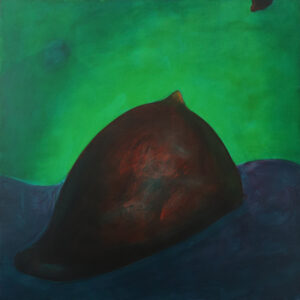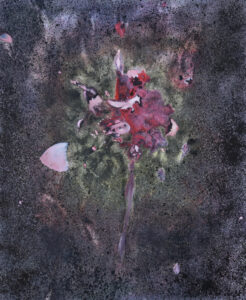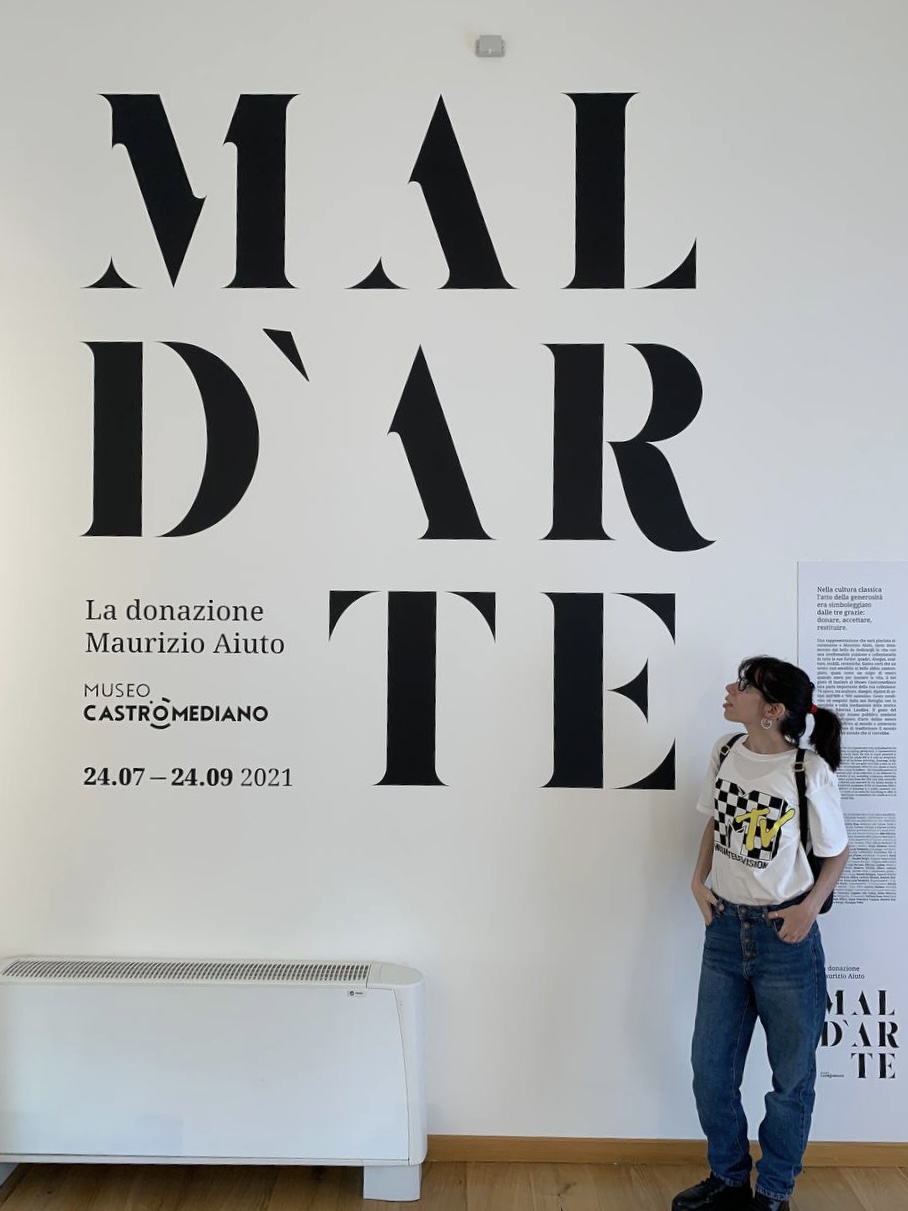When Art, Man and Nature meet, a union that is difficult to decipher emerges, which is transformed into noble creative forms. These translations can find confirmation, in a vague and cryptic way, in the exploratory complicity of the works by the Mantuan Federico Aprile, born in 1989. The young artist, who is also involved in teaching and atelier activities, currently lives in Reggio Emilia, after having obtained a master’s degree in painting at the Academy of Fine Arts in Bologna. The numerous experiences to refer to when we talk about this young promise of art are to be counted. Just think of the collaborations undertaken with local groups, such as the Officina delle Arti (OFF) from Reggio Emilia, the Morsura Group from Bologna, and the participation in national and international exhibitions and events, such as “Signs for a living nature” (2015), “Codici Italia Academy” (2015), Venice Biennale, Arte Laguna Prize (2016), “GAM” (2016) and “Temporali” (2021). To get to better know Federico Aprile, his art and his imaginative world, we asked him a few questions.

Federico Aprile, photo-portrait, 2022
Antonella Buttazzo: What are the reasons that prompted you to become an artist and if you hadn’t undertaken this profession, what would you have done in life?
Federico Aprile: The reason was and is: my grandfather Giacomo, now gone for too long. My grandfather built “casotti” in his garden, i.e. places surrounded by green walls made of corrugated fiberglass: for him, those places were fortresses in which his tools and materials were ordered, but at the same time, they were places where with my cousin Gianluca I sneaked in to discover phantom mysteries. They were dreamlike spaces in which we could feel pervaded by the light that filtered through the walls, an acid green light, always. There was no respite, at night a dozen green street lamps, created by my grandfather with empty Lambrusco demijohns, lit up the lane, us and the “casotti”. If I hadn’t become an artist, I think I would have been a carpenter or a cook.

Federico Aprile, Il Grande Senno, oil on canvas, 2020, 30 x 130 cm, courtesy the artist and FineArtx
What is the relationship with your works and what do you feel while you create them?
The work rises when I relate. My work is above all a thought, a purpose, a sense, an inescapable awareness. Then I feel the responsibility, I don’t know towards whom or what. Suddenly I have to close myself in the studio to draw, for days, weeks or months. I finalize little when I work with the material. Before approaching the work, the definitive image, I must have metabolized every aspect. I am well aware that all this is paradoxical, since in each of my latest works I always reserve a good dose of chance, or rather, I love to cause chaos and wait to recognize chance in it, in all its manifestations, in all its unpredictability.

Federico Aprile, Mind and Body, oil on canvas, 2020, 30 x40 cm, courtesy the artist and FineArtx
In your works, Nature and Man are the protagonists of those instinctive and emotional components typically inherent in the human nature. So how does your art fit into the disharmonious and unreasonable contemporary context we are living in?
I answer with a thought that accompanied me in one of the many sleepless nights:
“Painting has a very high cost. Not painting means putting desire on balance. Painting without necessity means offering only expired goods. Making yourself paint is business.
We cannot be slaves of that time which wants an image ready tomorrow or just later than today. We have a duty to give space and love to the shape, color and dream that knocks on the inner doors of our skin”.

Federico Aprile, Il Fiore, oil and spindle on canvas, 2018, 127 x 101 cm, courtesy the artist and FineArtx
In the artistic field, what experiences do you consider important in the elaboration of your aesthetics?
Observe Mark Rothko and participate in his lesson of “necessity”. Observe Henri Rousseau and his “immersion” lesson. Observing swamps and their lesson on “latency”.

Federico Aprile, Pneuma, spindle and black 3.0 on canvas, 2018, 101 x 127 cm, courtesy the artist and FineArtx
We have talked about your relationship with art and works up to now, but now I’m asking you: do you feel you are the spokesperson for a very specific message as a link between Nature and the human world or do you recognize yourself as a simple interpreter of the macrocosm of which everyone do belong?
Our mind allows us to control our body. Our body allows our mind to be able to control our body. Overall, in terms of overall vision and irony, I don’t feel like ruling out a disability in the near future. If there is a God, if there is an otherworldly being, surely there is a great failure and consequently a great sense of irony.
Info:
Federico Aprile Archivi – FineArtx

After obtaining the high school languages diploma, she continued her studies graduating in Art History at the University of Salento, with a bilingual thesis on the Pre-Raphaelites. Since then, she has been actively contributing as a columnist and collaborator with national blogs and with local magazines and TV programs.






NO COMMENT